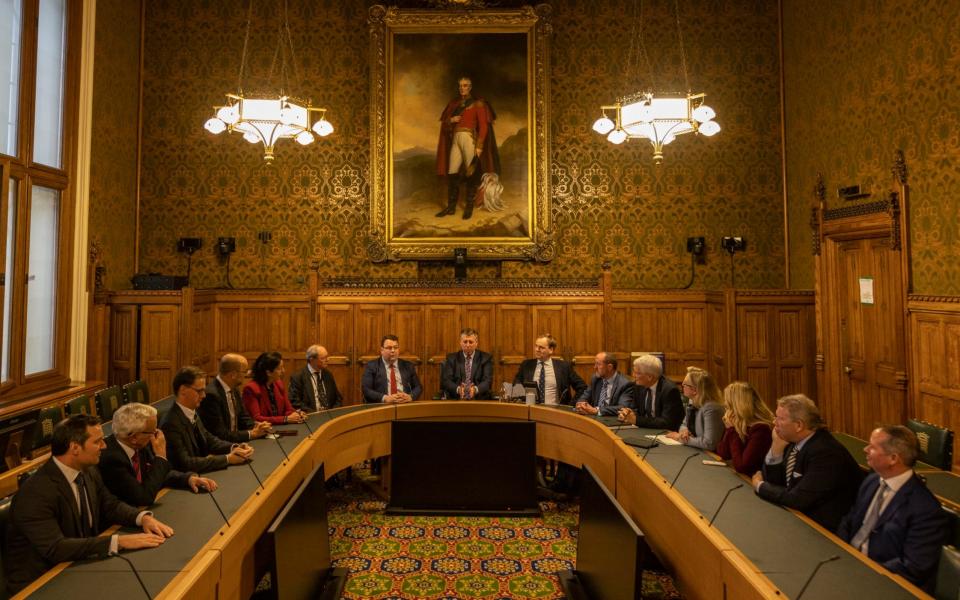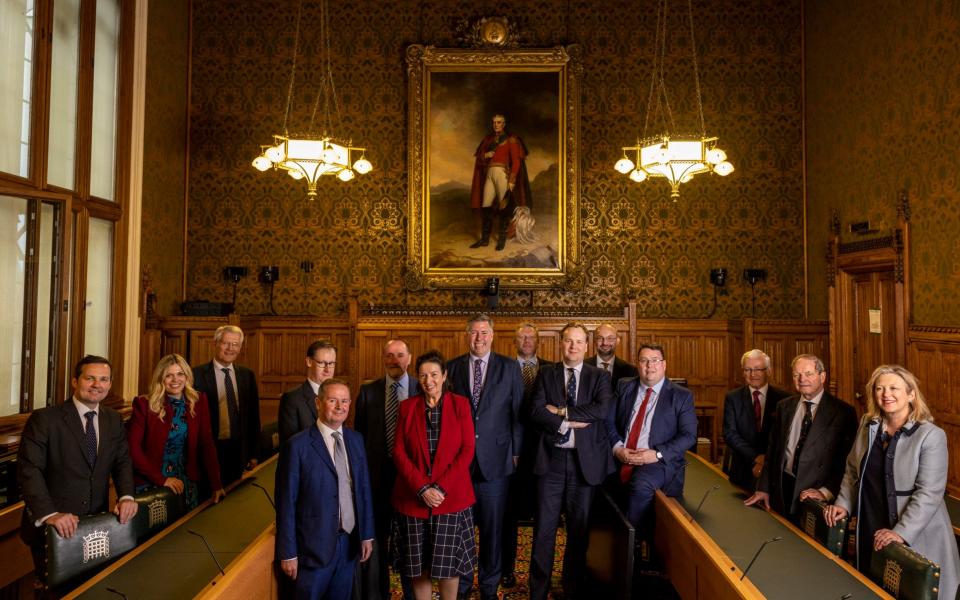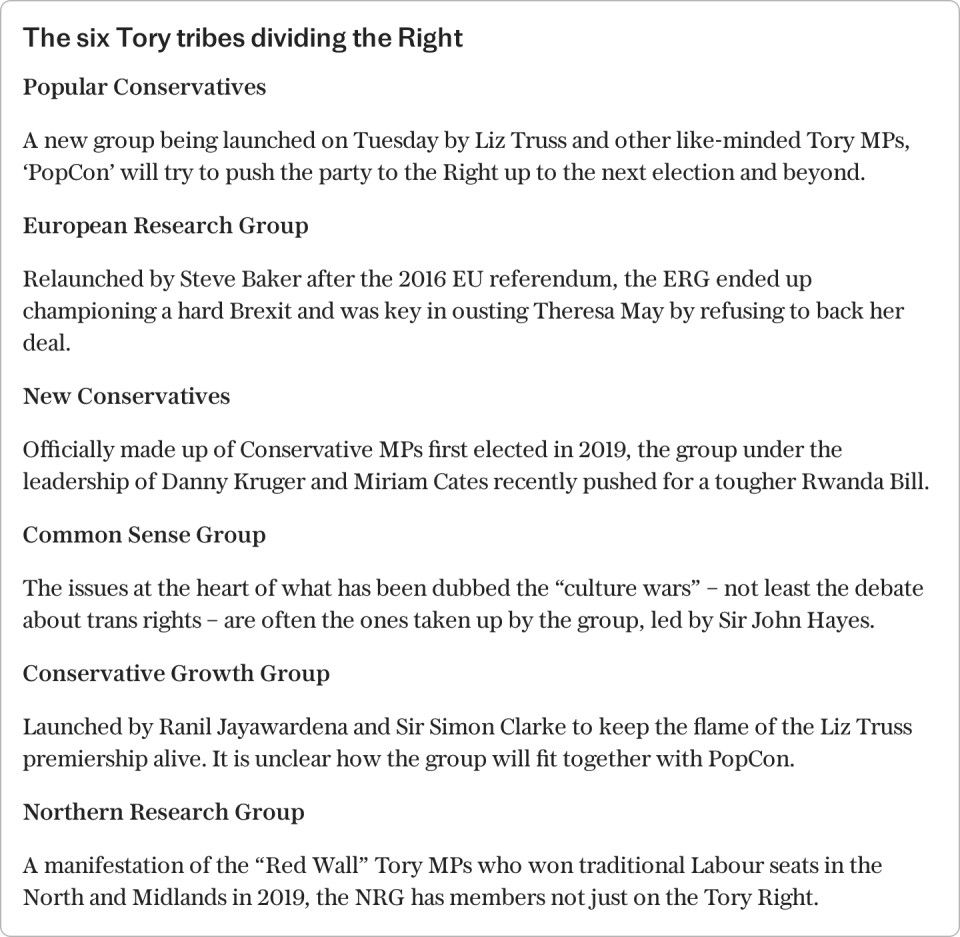The 1922 Conservative Party Committee has the power to make or break the careers of MPs, right down to the leader of the party. Indeed, it has sealed the fate of two recent prime ministers.
In the final days of both Boris Johnson and Liz Truss’s terms in office, it was the job of Sir Graham Brady, chairman of the 1922 committee, to visit them in Downing Street and tell them the game was up.
The committee, which celebrated its 100th anniversary last year, was set up to represent the interests of backbench MPs. It operates behind closed doors, holding weekly meetings with MPs and acting as a conduit between the Conservative Parliamentary Party and the government.
Given the amount of influence it wields, it is no surprise that the 1922 Committee occasionally draws the ire of fellow MPs. But in recent weeks, frustration among backbenchers has reached boiling point, with committee members accused of acting as “henchmen” for the Prime Minister.
As one former Cabinet minister put it, the 1922 Committee is now not seen by some Tory MPs as ‘supporting Rishi’.


One MP told The Telegraph: “They no longer represent the parliamentary party. It has become a thank you club for Rishi. They’re just his minions.’ And they claimed that some high-ranking members of the committee may have been “bought off with gongs and peerages”.
Another veteran MP and former officer of the 1922 Committee echoed this sentiment, saying: “One of the problems is that too many officers of the ’22 are not running as MPs again, so what are they looking for? They are looking at their ticket for the House of Lords.”
“They should be more representative of what’s happening. As for their relationship with the Prime Minister, there should be a healthy tension between the two. They are not really doing their job to vigorously defend the interests of conniving MPs.”
The MPs claim that as a number of senior members of the committee stand down at the next election, they feel less inclined to engage with Downing Street because they already have one foot out the door and are at least trying to curry favor with Mr Sunak.
Sir Graham has said he will not stand again as an MP, as has William Wragg, one of the committee’s joint chairmen, along with Jo Gideon, an executive member. A Downing Street source said they do not recognize claims about promises of peerages and gongs.


Some believe that MPs who have said they will resign at the next election should give up their seats on the committee to make way for new faces.
A former minister said: ‘Most people feel that the 1922 Committee is not a useful body to express frustrations with the Prime Minister. Either you go to someone in Downing Street yourself, or you go by other routes, or you make it public.
“No one can even remember their names, except Graham Brady, who is leaving at the next election anyway – that changes the position. It makes him a lame duck.”
‘No functioning party’
Others believe that the rise of factions in the Conservative Party – the so-called “five families” – is partly a response to the lack of confidence in the 1922 Committee’s ability to adequately convey MPs’ feelings to ministers.
The rise of factions “speaks to how divided the party is” and “shows how broken the 1922 Committee is. We are simply not a functioning party,” MPs claim.
The New Conservatives is the most recent of the groups, having been formed in May last year and counting mainly members of the 2019 election intake among its members.
The One Nation group represents the largest grouping within the Tories and includes a large number of MPs from the centrist section of the party.
The European Research Group (ERG) is seen as one of the most influential within the Tory party and played a major role during the Brexit negotiations.
The Common Sense Group was inspired by the ERG and launched in November 2020 to give right-wing MPs a forum to coordinate policy initiatives. Finally, the Northern Research Group is made up of Tory MPs representing constituencies in the north.


For some in the party, distrust surrounding the motives of the 1922 Committee goes back to the last battle for the leadership of the Tory Party. “He was put in position and is being kept in position by the 1922 committee,” said one MP.
At the time of the last leadership contest, the 1922 Committee, together with the Conservative Party board, drew up the rules.
The rules stated that only candidates who can secure the nomination of 100 Tory MPs (out of around 360 available) can take part in the MPs’ ballot. This meant that Rishi Sunak was crowned party leader and Prime Minister without a vote going to Tory party members, as happened to his predecessor Mrs Truss.
Keeping Mr Sunak in power
John Strafford, chairman of the grassroots Conservative Campaign For Democracy group, said there is “no doubt whatsoever” that the 1922 Committee is keeping Mr Sunak in power.
“When Rishi became prime minister, the ’22 Committee acted in coordination with the party leadership and changed the existing system of how many people were needed to nominate a candidate,” he said.
“They just shamefully changed the rules and there was no consultation with party members.”
A senior MP said: “The way the rules were manipulated to prevent a real match from happening, to prevent Boris from coming back and so on, showed that they were not objective and inward-looking. ”
But even those who criticize the committee still praise Sir Graham, who is widely respected by his colleagues. “Graham has always been very discreet, not revealing what he has said to Prime Ministers, but has handled it with reasonable discretion on a number of different occasions,” one MP said.
Sir Graham said: ‘Most of the work of the officers and executives of the 1922 Committee is done privately and is more effective for that purpose. We also regularly offer an open forum where all colleagues can express their opinions.”

